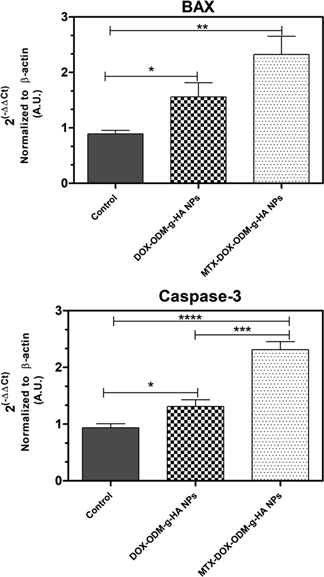Crossref Citations
This article has been cited by the following publications. This list is generated based on data provided by
Crossref.
Giordano, Federica
Lenna, Stefania
Rampado, Riccardo
Brozovich, Ava
Hirase, Takashi
Tognon, Mauro G.
Martini, Fernanda
Agostini, Marco
Yustein, Jason T.
and
Taraballi, Francesca
2021.
Nanodelivery Systems Face Challenges and Limitations in Bone Diseases Management.
Advanced Therapeutics,
Vol. 4,
Issue. 12,
Sengar, Prakhar
Chauhan, Kanchan
and
Hirata, Gustavo A.
2022.
Progress on carbon dots and hydroxyapatite based biocompatible luminescent nanomaterials for cancer theranostics.
Translational Oncology,
Vol. 24,
Issue. ,
p.
101482.
Sivakumar, Ponnurengam Malliappan
Yetisgin, Abuzer Alp
Demir, Ebru
Sahin, Sevilay Burcu
and
Cetinel, Sibel
2023.
Polysaccharide-bioceramic composites for bone tissue engineering: A review.
International Journal of Biological Macromolecules,
Vol. 250,
Issue. ,
p.
126237.
Nimbalkar, Yogesh
Gharat, Sankalp A.
Tanna, Vidhi
Nikam, Vandana S.
Nabar, Swapna
and
Sawarkar, Sujata P.
2023.
Modification and Functionalization of Polymers for Targeting to Bone Cancer and Bone Regeneration
.
Critical Reviews in Biomedical Engineering,
Vol. 51,
Issue. 3,
p.
21.
Ganie, Showkat Ali
Rather, Luqman Jameel
and
Li, Qing
2023.
Recent Innovations in the Strategies for the Functionalization of Chitosan, Pectin, Alginate, Hyaluronic Acid, Dextran and Inulin Biomaterials for Anticancer Applications-A Review.
Journal of Polymers and the Environment,
Vol. 31,
Issue. 1,
p.
13.
Neves, Ana R.
Albuquerque, Tânia
Biswas, Swati
and
Costa, Diana Rita Barata
2023.
Inorganic Nanosystems.
p.
407.
Sinduja, M. E.
Mahendiran, Balaji
Radhakrishnan, Janani
Arun, C.
and
Krishnakumar, Gopal Shankar
2023.
Handbook of the Extracellular Matrix.
p.
1.
Bagheri, Leyla
Jafari-Gharabaghlou, Davoud
Valizadeh, Hasan
Barzegari, Abolfazl
and
Zarghami, Nosratollah
2023.
Design and development of biodegradable POSS-PCL-Zeolite (β) nano-scaffold for potential applications in bone regeneration.
Journal of Biomaterials Science, Polymer Edition,
Vol. 34,
Issue. 11,
p.
1559.
Afraei, Fatemeh
Daneshjou, Sara
and
Dabirmanesh, Bahareh
2024.
Synthesis and evaluation of nanosystem containing chondroitinase ABCI based on hydroxyapatite.
AMB Express,
Vol. 14,
Issue. 1,
Sinduja, M. E.
Mahendiran, Balaji
Radhakrishnan, Janani
Arun, C.
and
Krishnakumar, Gopal Shankar
2024.
Handbook of the Extracellular Matrix.
p.
605.
Sinduja, M. E.
Mahendiran, Balaji
Radhakrishnan, Janani
Arun, C.
and
Krishnakumar, Gopal Shankar
2024.
Handbook of the Extracellular Matrix.
p.
1.
Kortam, Sally
Lu, Zufu
and
Zreiqat, Hala
2024.
Recent advances in drug delivery systems for osteosarcoma therapy and bone regeneration.
Communications Materials,
Vol. 5,
Issue. 1,
Chahkandi, Mohammad
Zargazi, Mahboobeh
Ghiasabadi, Khadijeh Boland
Chung, Jin Suk
Khodadadi Yazdi, Mohsen
Saeb, Mohammad Reza
and
Baghayeri, Mehdi
2024.
Graphitic carbon nitride nanosheets decorated with HAp@Bi2S3 core–shell nanorods: Dual S-scheme 1D/2D heterojunction for environmental and hydrogen production solutions.
Chemical Engineering Journal,
Vol. 499,
Issue. ,
p.
155886.




